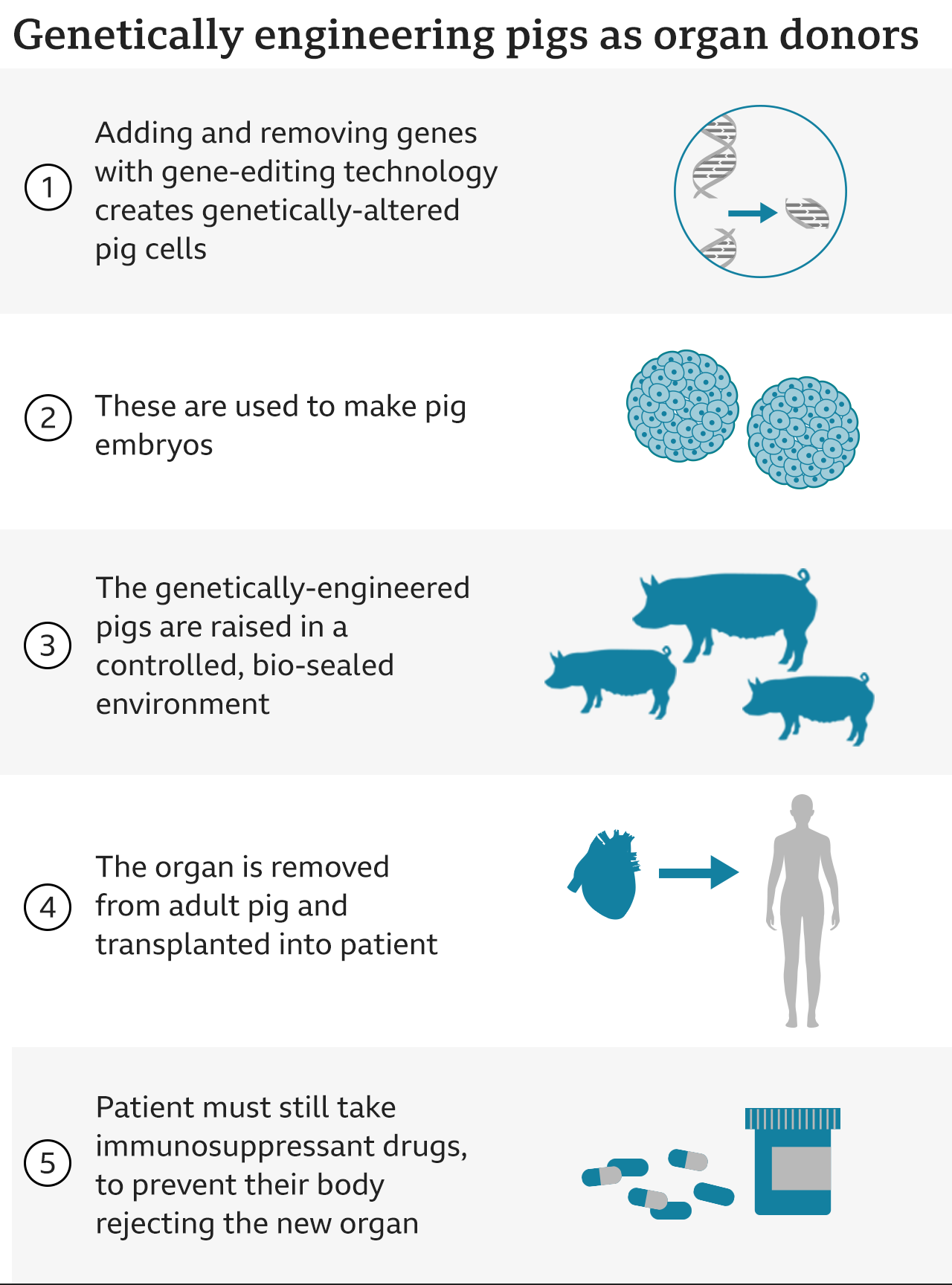Animal to Human Transplants (Xenotransplantation) | 13 Jan 2022
Why in News
Recently, in a medical first, doctors transplanted a pig heart into a patient in a last-ditch effort to save his life in the US.
Key Points
- About:
- Xenotransplantation involves the transplantation of nonhuman tissues or organs into human recipients.
- This is the first successful transplant of a pig’s heart into a human being. However, it’s too soon to know if the operation really will work.
- This time, a heart from a pig that had undergone gene-editing has been used to remove a sugar in its cells that’s responsible for that hyper-fast organ rejection.
- Genome editing (also called gene editing) is a group of technologies that give scientists the ability to change an organism's Deoxy-Ribonucleic Acid (DNA).
- Prior attempts at such transplants — or xenotransplantation have failed. One of the biggest obstacles to transplantation is organ rejection.
- This has re-sparked a debate over the use of pigs for human transplants, which many animal rights groups oppose.
- Significance:
- This development could bring us one step closer to solving the global organ shortage.
- In India, patients need 25,000-30,000 liver transplants annually. But only about 1,500 end up receiving them.
- Pigs are increasingly becoming popular candidates for organ transplantation.
- Pigs offer advantages over primates for organ procurements, because they are easier to raise and achieve adult human size in six months.
- Pig heart valves are routinely transplanted into humans, and some patients with diabetes have received porcine pancreas cells.
- This development could bring us one step closer to solving the global organ shortage.

